In order to consider the further development of Japanese Tea Industry, it is necessary to review big topics in this year at the year-end. So I’d like to list the top 10 topics related to Japanese Tea Industry as follows.
(1) University of Shizuoka Held the Seminar Related to Global Tea Initiative
University of Shizuoka and UC Davis held a special seminar belonging to Global Tea Initiative in University of Shizuoka. Prof. Gervay-Hague and Prof Burnett gave lectures about the cultivation of tea plants in California and history of teapots in Vietnam, respectively.
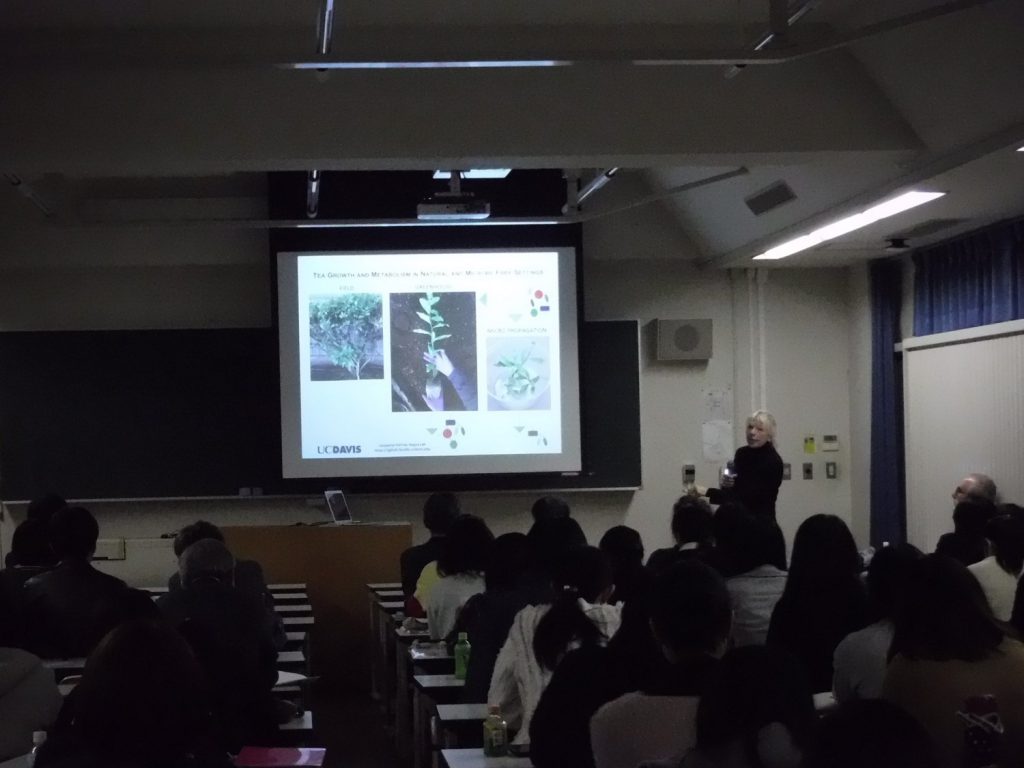
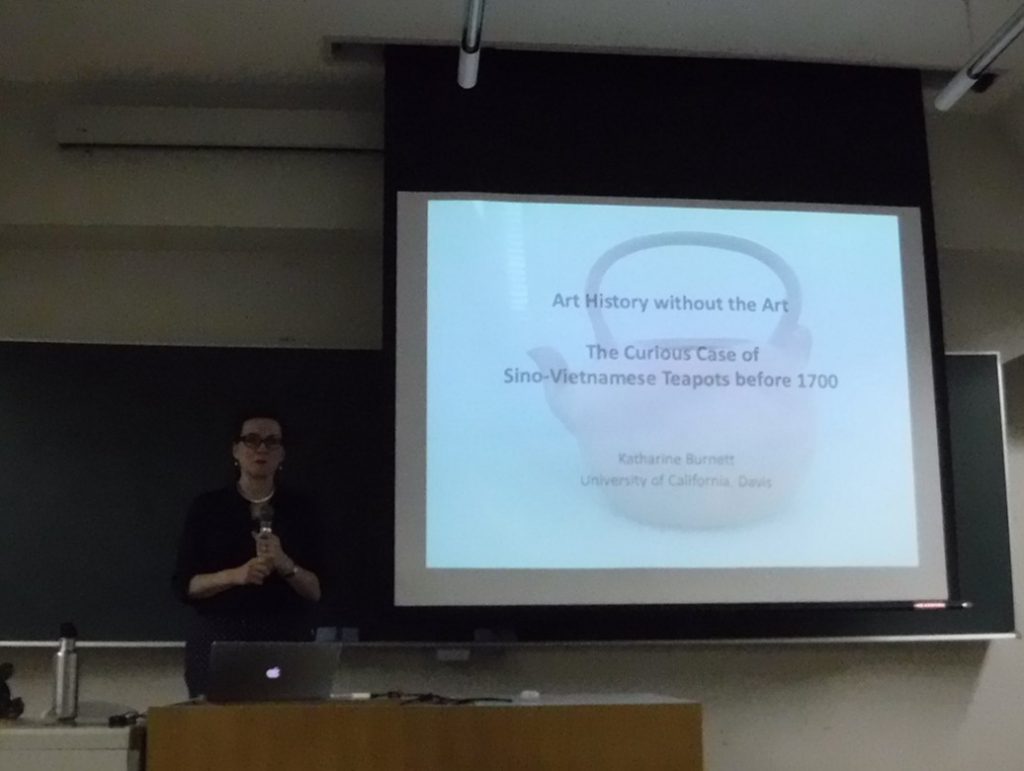
Tea scientists and students in Japan could learn directly from the prominent tea researchers from UC Davis, thanks to the continuous efforts of Dean/Prof. Kobayashi and his colleagues for the collaboration of University of Shizuoka and UC Davis.
I hope such seminar or scientific event could keep constantly in Japan and more tea scientists in Japan would contribute to Global Tea Initiative, resulting in the sufficient research fulfillments which can promote our healthy and wealthy lives.
(2) Japanese Tea Award Became Worldwide
Japanese Tea Award has held annually since 2014. This tea competition prizes specialty teas based on the election by not tea specialists but consumers or visitors, which means the teas prized in Japanese Tea Award highly reflect the consumers’ preference.
Although the traditional tea competition almost fixes the method of judgement, Japanese Tea Award quickly create new fields or adjust the methods for tea election corresponding to the trend.
The globally gaining popularity of Japanese tea led Japanese Tea Award to hold the election event in Paris and a special tour for international business persons living in Japan.
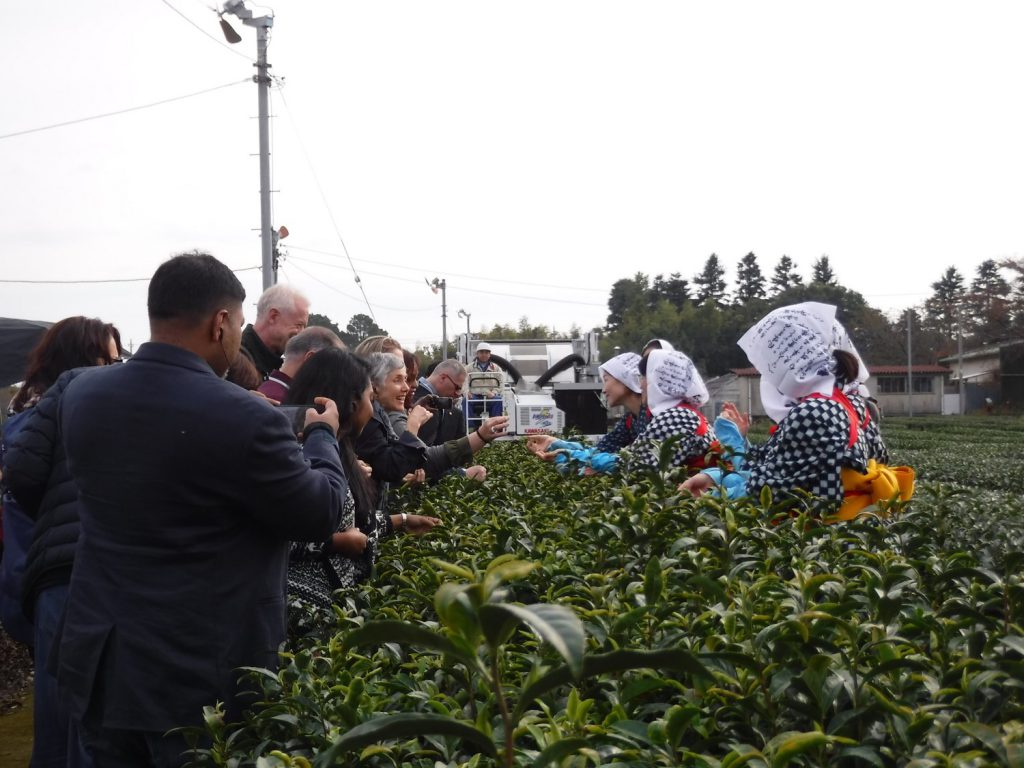
The experience of hand picking tea shoots in the tour of Japanese Tea Award for the international business persons living in Japan.
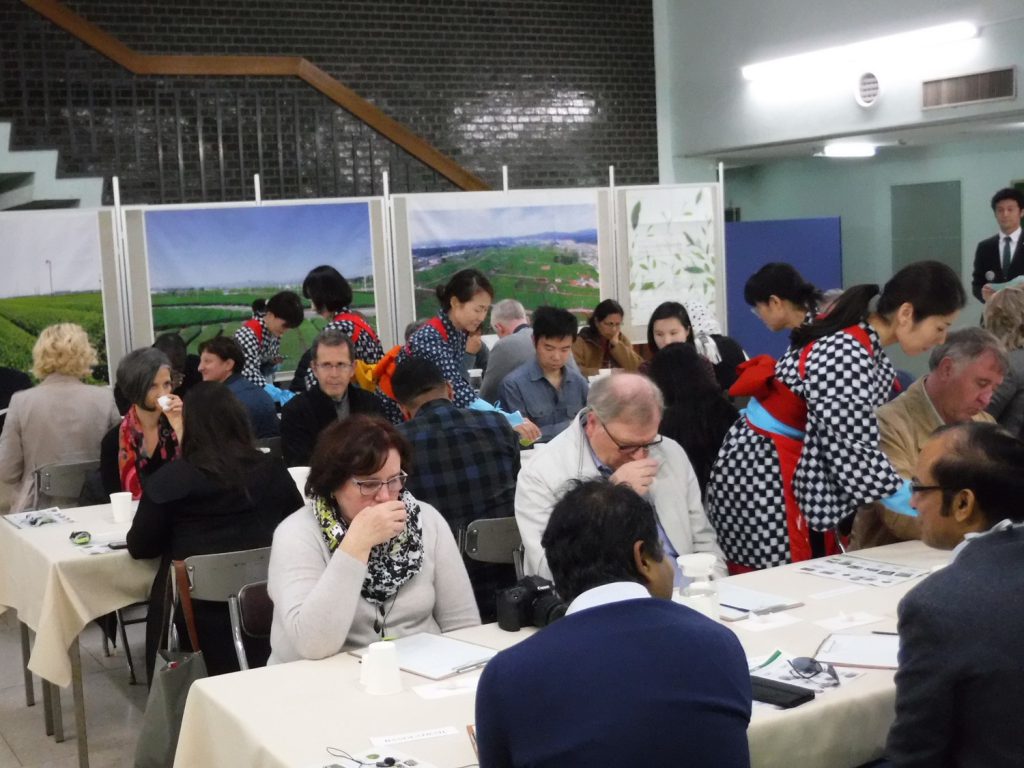
The participants select the best one from 19 specialty teas prized as platina award in Japanese Tea Award 2018.
I’m very glad to hear various compliments for a wide variety of Japanese specialty teas.
Hopefully more people in various nations could join the election events of Japanese Tea Award.
(3) MAFF scopes the further promotion of organic tea farming
MAFF held “Organic Tea Power-Up Meeting” on January 2018 to promote organic tea farming in Japan for the first time, implying MAFF puts its significance on the production of organic tea more than ever.
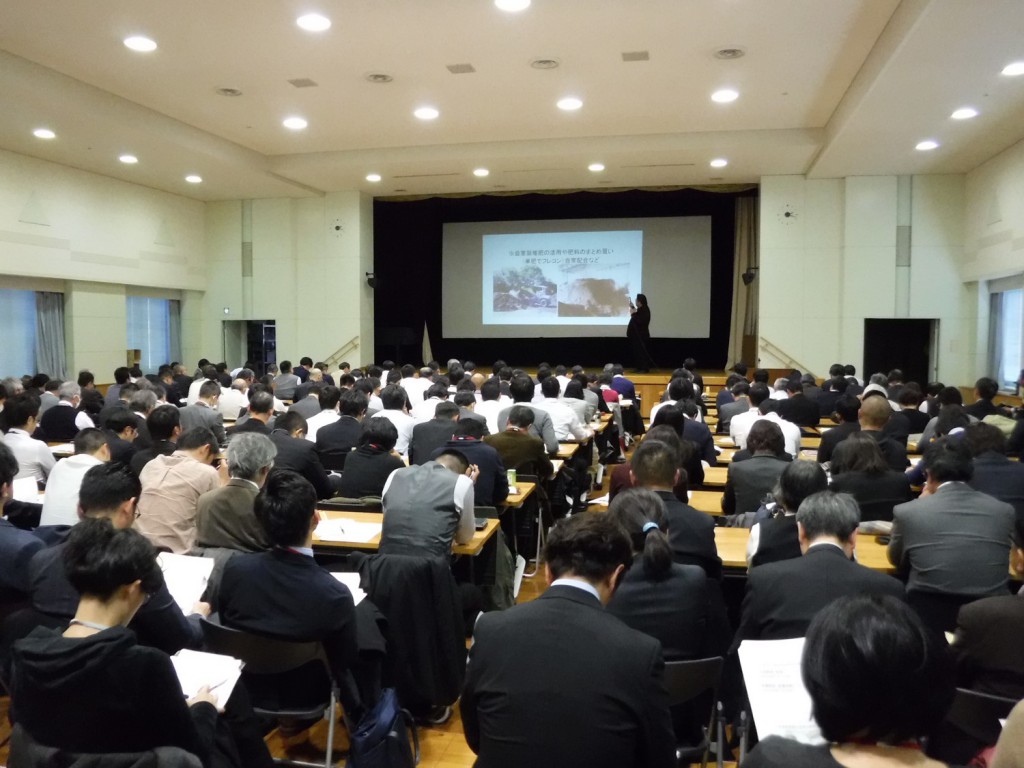
The venue was full of visitors including not only tea farmers but also tea merchants, global traders, agriculture consultants etc., indicating the great interests for organic tea in Japan.
I hope we could enjoy flavorful organic tea more than ever.
(4) Japonismes in Paris
Japonismes 2018, the event of cultural handshake between France and Japan for 160 years, was held in Paris from the end of September to December. As a series of the event, many cafes and restaurants served various cocktails and douceurs using Japanese tea, which are originally created by the culinary artists in each restaurants. We can see these arts of cuisines using Japanese teas on the official website of Japonismes 2018.
(5) 110th annversary of Shizuoka Tea Research Center and Yabukita
2018 is the 110th year after the Shizuoka Tea Research Center was established and Hikosaburo SUGIYAMA bred “Yabukita”, the king of tea cultivar for Japanese Sencha.
Shizuoka prefecture held the 110th anniversary event in the Prefectural Tea Research Center on November.
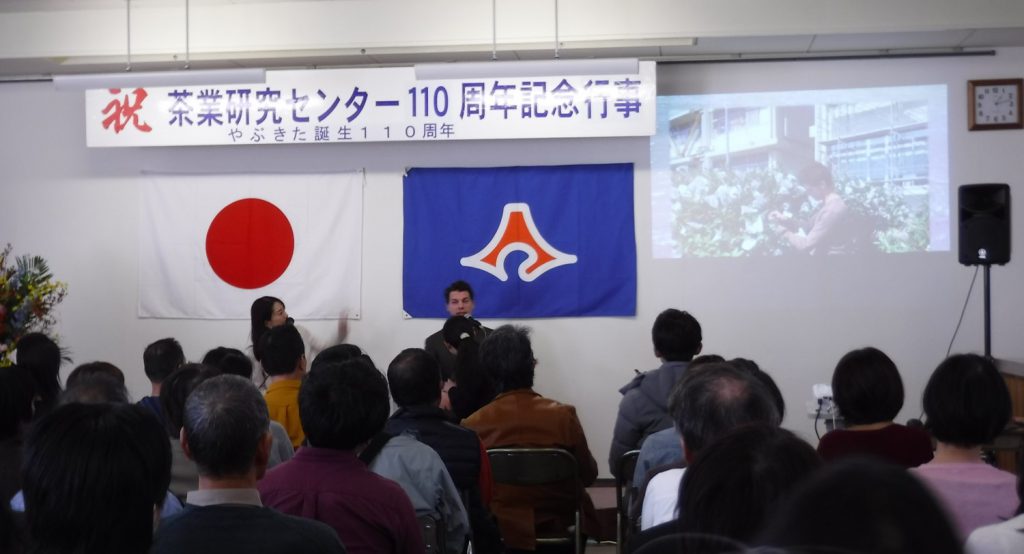
I realized some trends about Japanese tea in this event.
- The demand for natural aroma and its diversity of Japanese tea is growing steadily.
- Even young people prefer profound quality of Japanese tea based on the highly-sophisticated skill, I think according to the talk show presented by Brekel Oscar and Nile Tokumasu.
- Tea lovers still love the tea cultivar “Yabukita” due to the richness of umami well-balanced with nice astringency based on the talk by Brekel Oscar. The long-beloved tea cultivar is a symbol for the importance of continuous tea research. I’d like to appreciate Hikoaburo SUGIYAMA.
Hopefully the Shizuoka Prefectural Tea Research Center would contribute to the further development in tea research worldwide.
(6) “Tea Museum, Shizuoka” Reopened after Renovation
Shizuoka prefecture reopened “Tea Museum, Shizuoka” after renovation to promote following subjects.
- Realizing healthy and wealthy life with tea
- Sharing tea-related information, including daily use, science, history, culture, industrial aspects, machinery, worldwide
- Enhancing further development of tea industry in Shizuoka prefecture
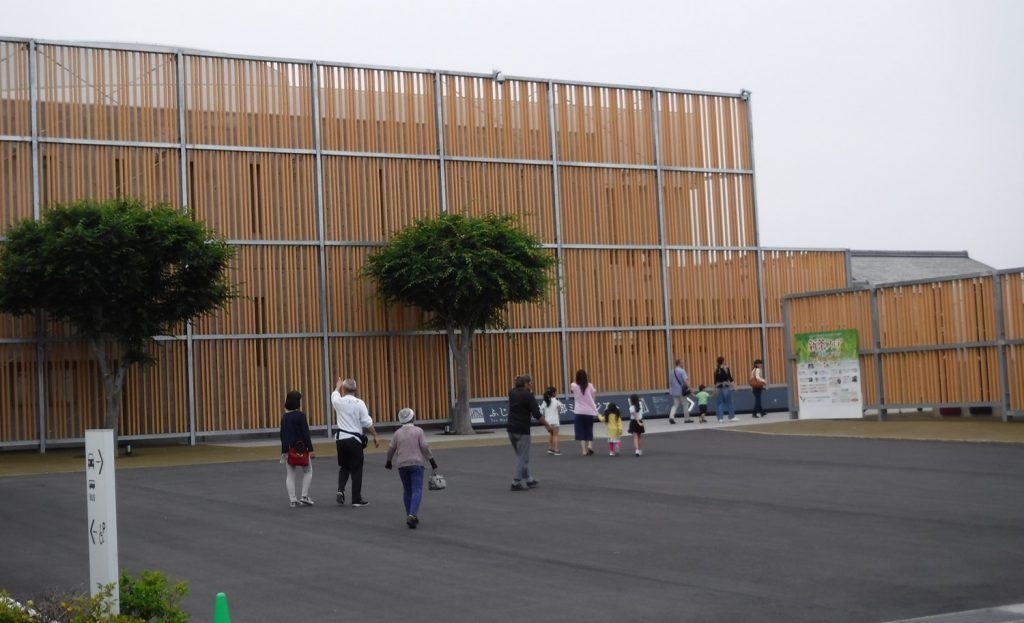
Many people visit the museum mainly on holidays. At the end of August, more than 800 thousands people have visited the Tea Museum, Shizuoka.
(7) Natural aroma in Sencha and black tea gaining their popularity
Tea leaves can generate wonderful aroma like flowers and fruits due to the enzymatic reactions inside. Shizuoka Prefectural Tea Research Center has studied the method to generate the natural aroma more abundantly by controlling the condition in the process of withering and maceration. Now tea farmers come to use the results and fulfillments of the series of investigation in Shizuoka Prefectural Tea Research Center.
For example, Katsumata Kaitaku Tea Production Cooperative has developed an aromatic Sencha named as “Hanakokochi”. This product was awarded as a frontier prize in the World Green Tea Contest 2018.
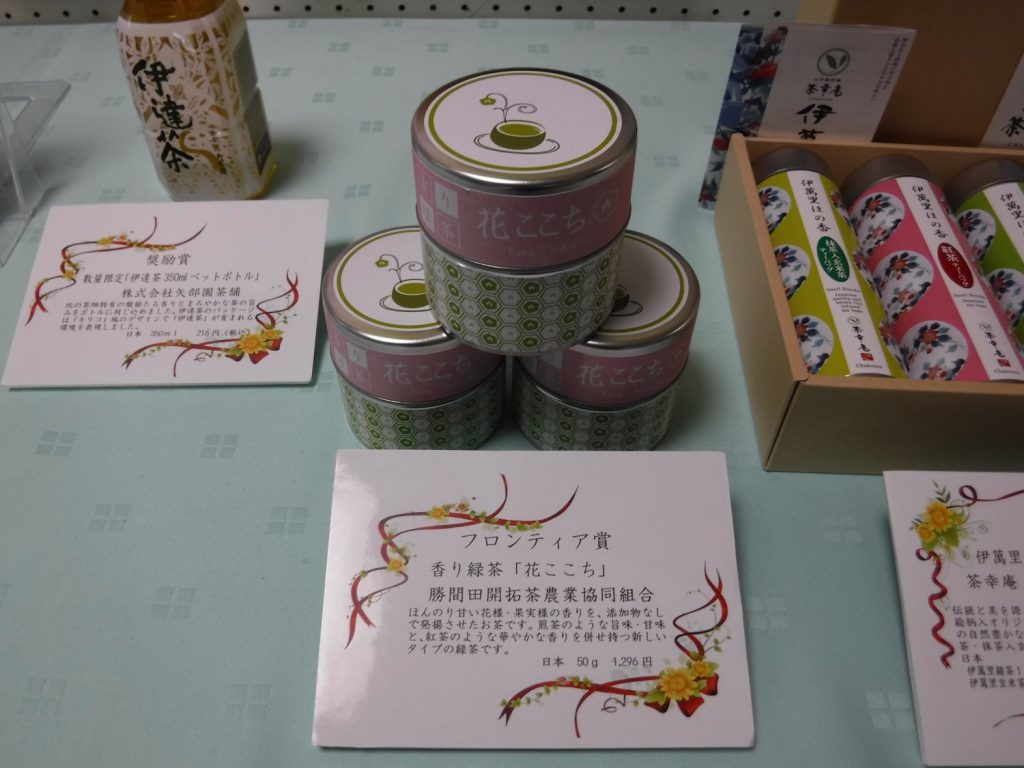
Imura-en has produced aromatic black tea which expresses peach like aroma with smooth mouthfeel and moderate finish. In this year, the black tea “Momoka” produced by Imura-en won the premium prize in Japan Tea Festival and the platina prize in Japanese Tea Award.
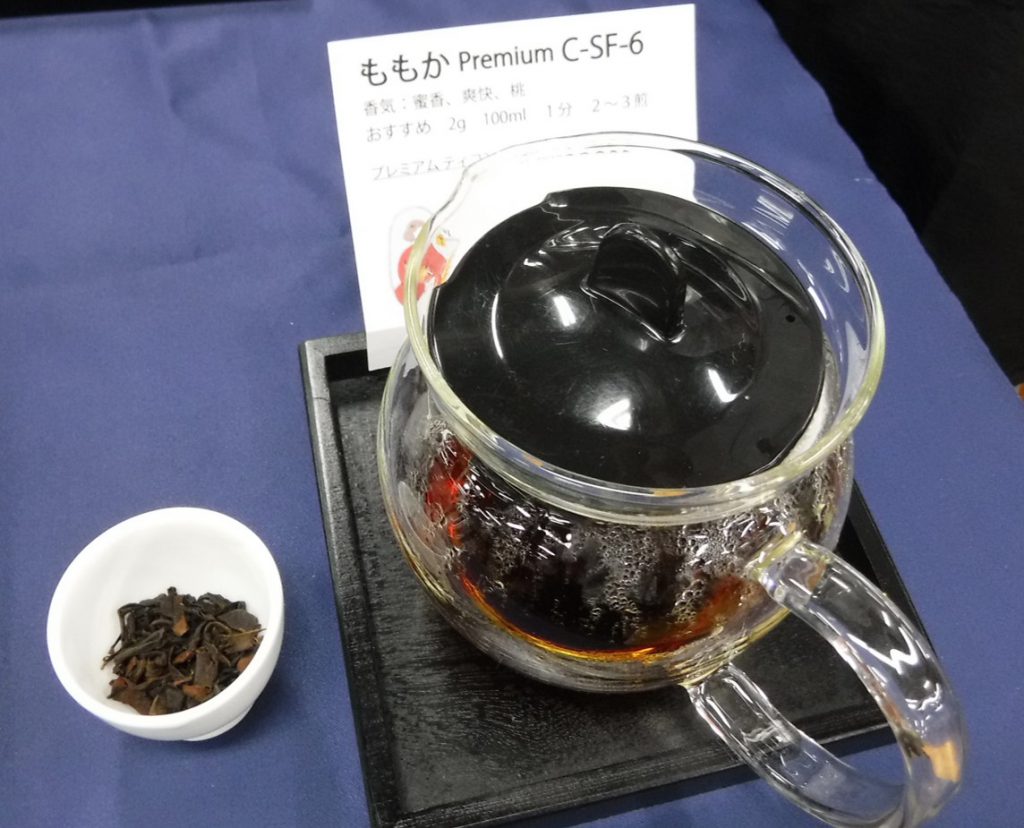
These prizes could indicate the popularity for aromatic Japanese tea is growing now and the naturally-induced aroma seems to get trendy.
(8) Japanese Teas Gaining Interests from Various Businesses
In my opinion, new tea businesses increased rapidly in this year, although there are no statistic survey for the number of tea-related businesses. As posted before, I found various businesses started tea-related services. For example, tea-related hospitality served by hotels like 1899 and ZAGYOSOH, unique menu using Japanese tea created by restaurants like MAVO, collaboration with other businesses like Itsu, which is a flower shop expressing attractive atmosphere by flowers and tea.
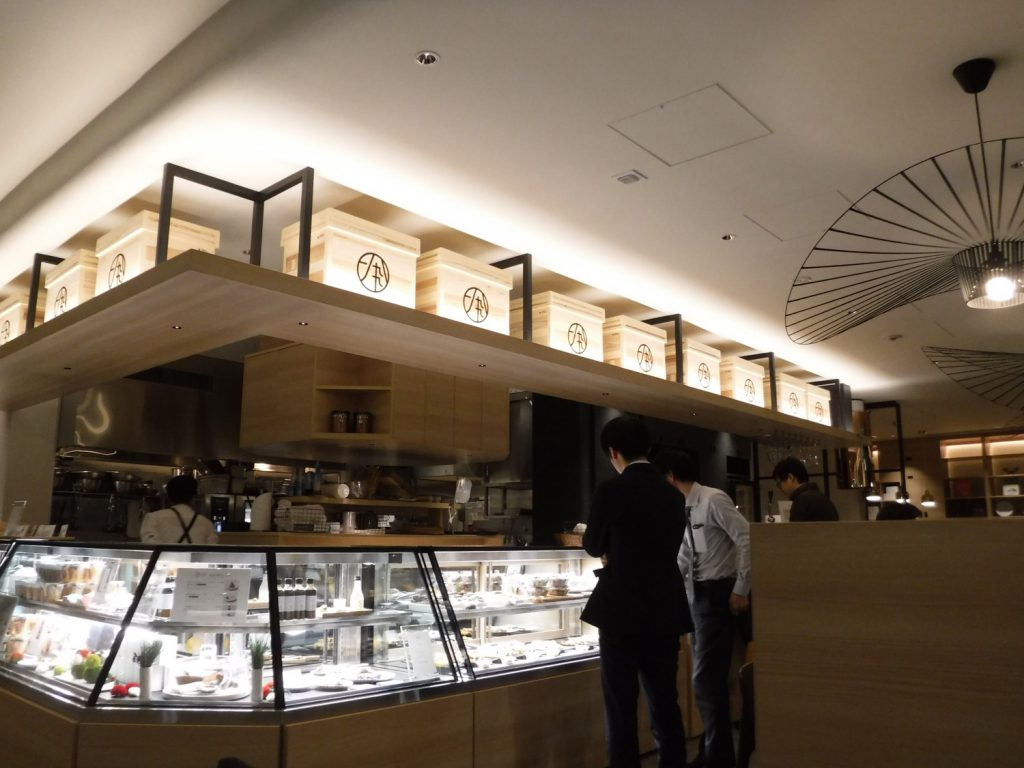
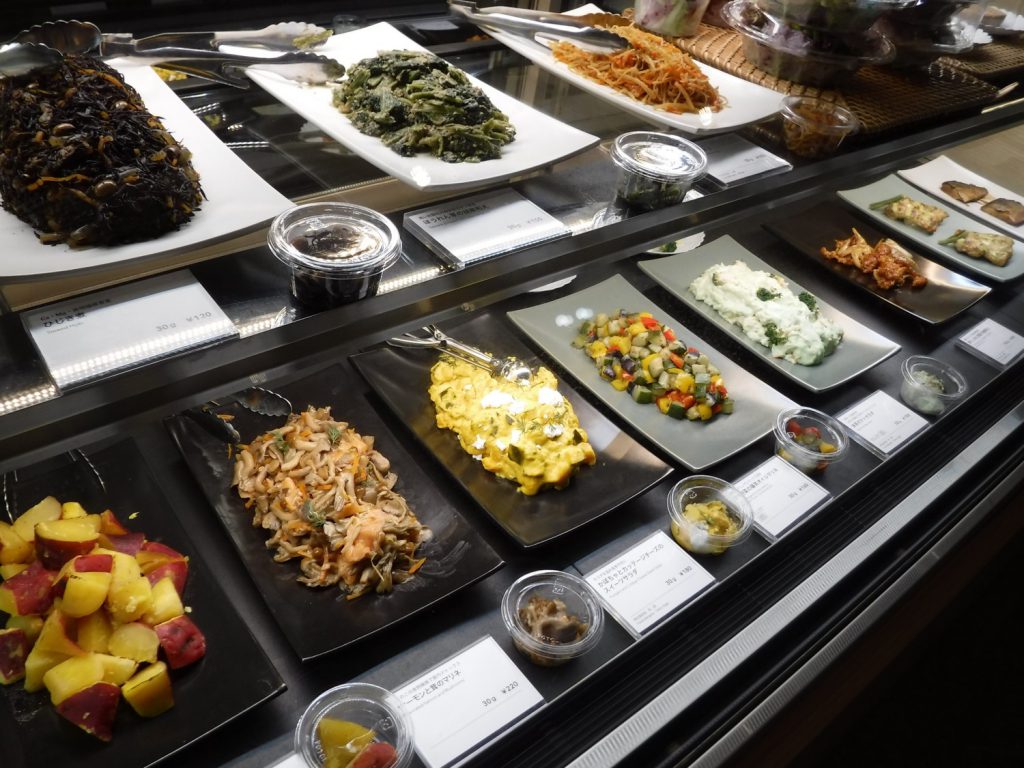
I found new types of tea merchants such as The Tea Company which produces original fermented teas based on the professional skills and consulting tea estates to cultivate ingredient tea shoots.
The number and types of tea event also increased. For example, “Tea For Peace” has started since March 2018 and been held constantly. Japan Tea Festival was also held for the first time as a series of annual event for Japanese black tea, cooperating with Japan Tea Association.

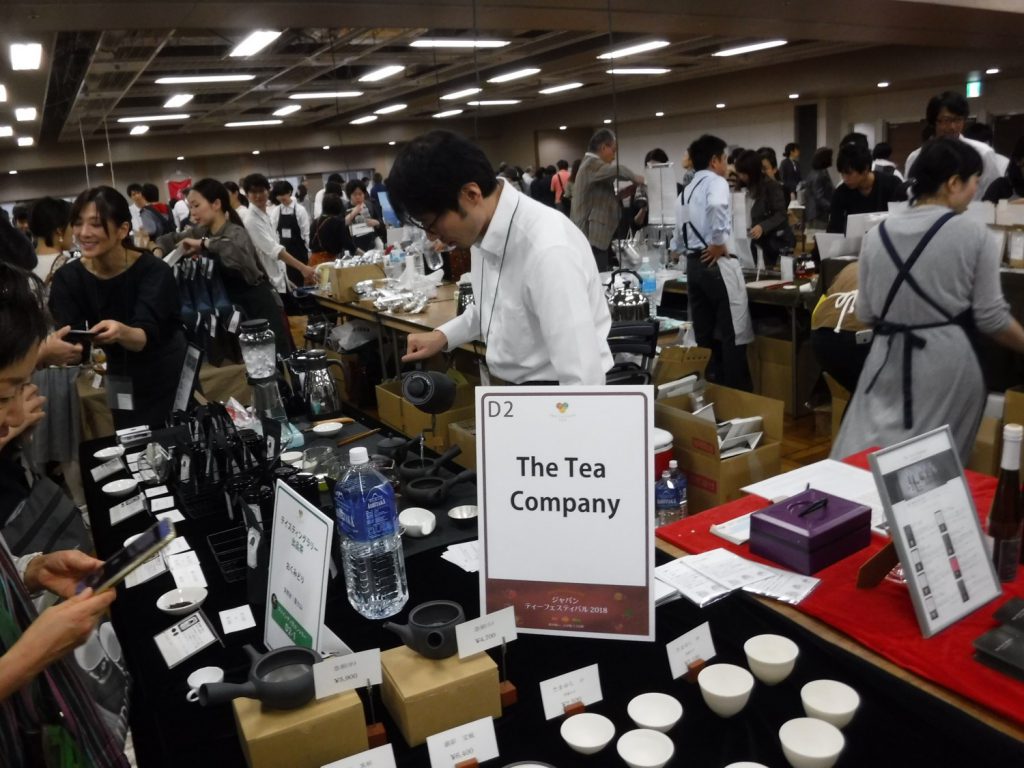
These new events related to tea attracts various people of all ages, indicating tea is recognized not only health beverage but also fancy drink, I think.
The consultation for tea farmers or estates by tea merchants or tea blenders could be a significant issue in future, I think.
(9) Smart Agriculture Gaining its Significance in Tea Cultivation
Matsumoto Kiko co. ltd. launched the unmanned machine for tea plucking which can pluck tea shoots automatically without ride-on operation. The machine matches for the demand of tea farmers who are eager to overcome the labor shortage. The labor shortage of tea farmers is the one of the biggest issues to solve in Japan.
The reasons of labor shortage are mainly (1) the expansion of farm size accounting for the increase of farmers’ retirement, and (2) shortage of operators accounting for the competing part-timers among industries.
Besides the unmanned machine for tea plucking, other robots are also required by tea farmers. Especially the machines for automatic weeding are demanded because weeding is one of the hardest and most time-consuming works in tea farming. In the “Organic Tea Power-Up Meeting”, a machinery company exhibited the automatic weeder for paddy field. Unfortunately there are no robotic weeder for tea farming because of the difficulty to remove weeds inside tea bushes and vines climbing tea stems as mentioned at the past post.
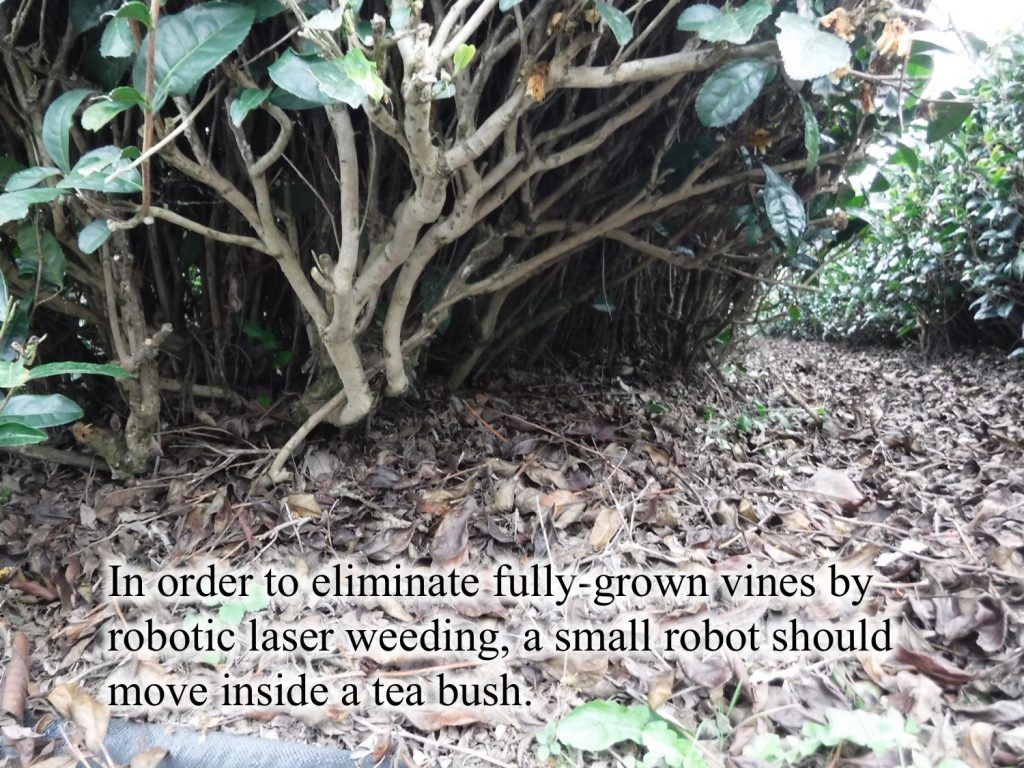
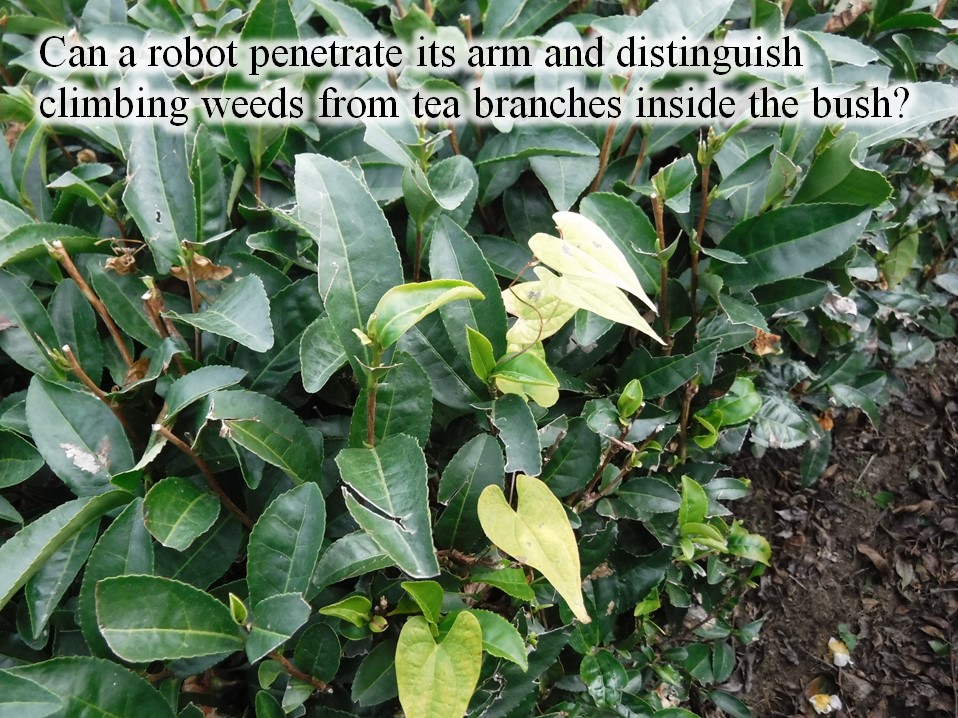
The development of automatic weeding robot is one of the most important issues for future tea farming.
(10) Nihondaira Yume Terrace provides programs related to tea experiences
Nihondaira Yume Terrace has been opened since this November and more than 100 thousands people had already visited the facility to enjoy the great landscapes. The café in the facility serves 3 types of specialty teas. Not only serving specialty teas, the café sometimes provides visitors with some programs for tea experiences. Considering the location near to Shimizu port, Nihondaira Yume Terrace is perfect to welcoming visitors by Japanese tea culture and great landscapes including Mt. Fuji.
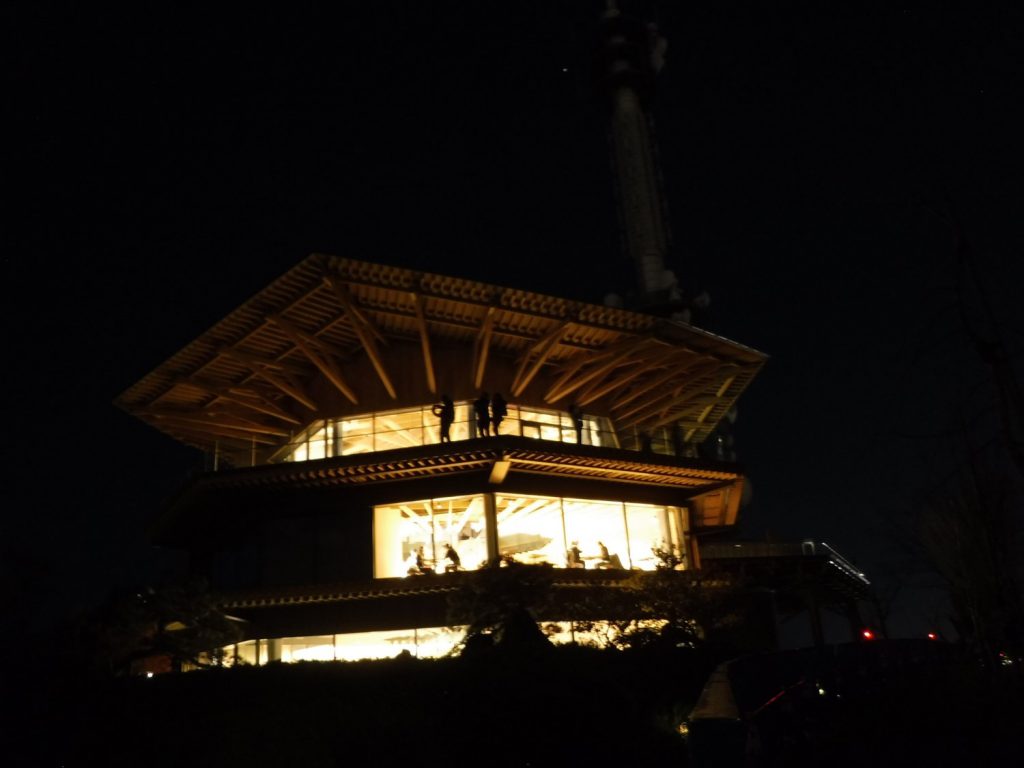
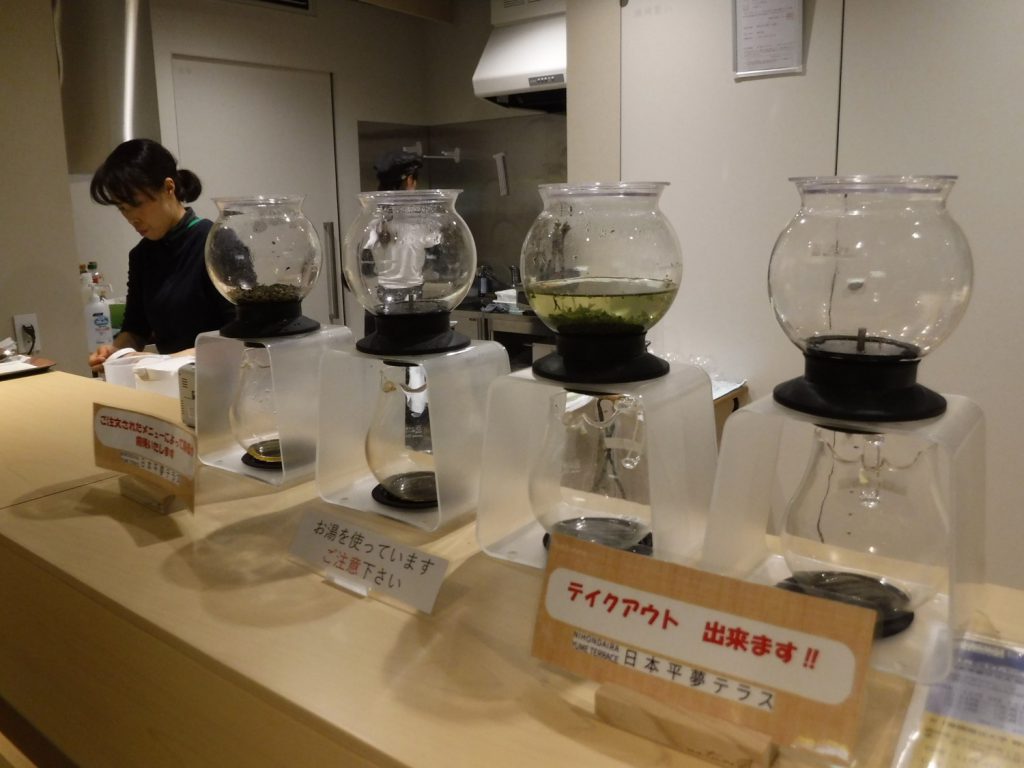
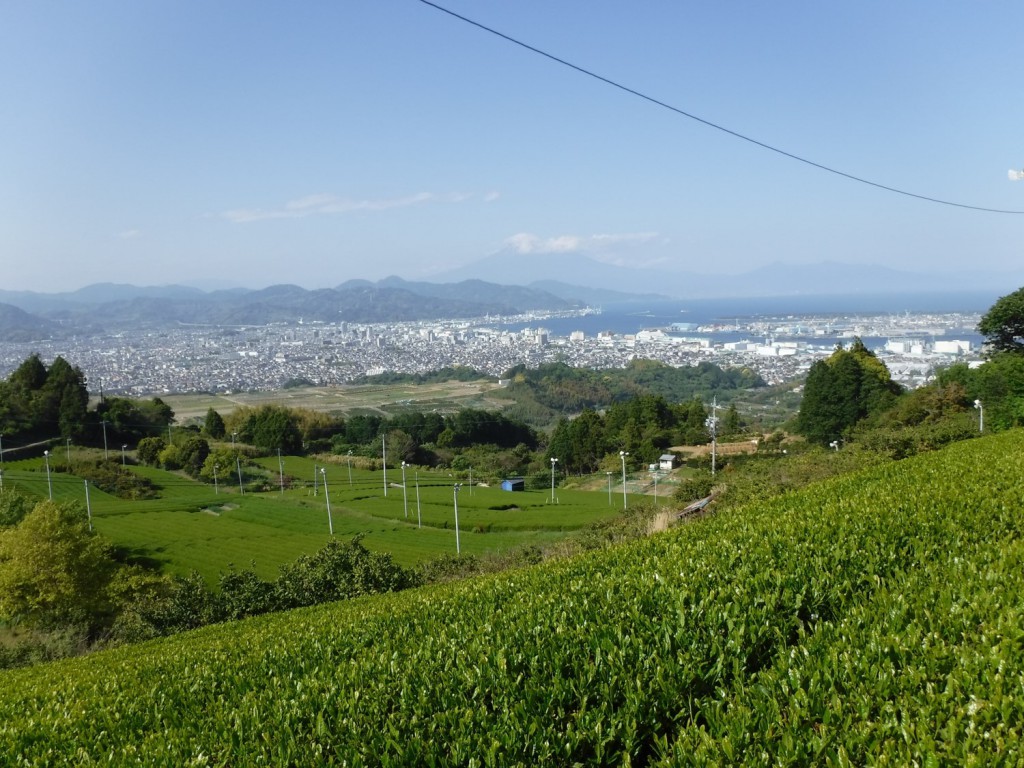
I hope these topics could contribute to your business insights!
If you have some ideas for further development of Japanese tea industry, please let me know your ideas by commenting.
